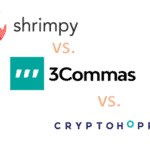Key takeaways:
- The lawsuit against Uniswap Labs and its CEO, foundation, and venture capital supporters was dismissed by the United States District Court for the Southern District of New York.
- The judge demonstrated a rare mastery of DeFi technology and advised the defendants to take their grievances to Congress instead.
Plaintiffs who claimed they lost money due to scam tokens on the decentralized cryptocurrency exchange filed a class action lawsuit against Uniswap Labs and its CEO, foundation, and venture capital supporters. The lawsuit was dismissed by the United States District Court for the Southern District of New York.
The Securities and Exchange Commission (SEC) is disputing Coinbase in court, and Judge Katherine Polk Failla, who rendered the dismissal, is also hearing that dispute.
Six people who purchased tokens on Uniswap between December 2020 and March 2022 filed the lawsuit. They claimed that Uniswap Labs controlled liquidity pools on the protocol, including those made by the con artists they lost money to, on behalf of a “nationwide class of users.”
The filing of the lawsuit was processed in April 2022. Under the Securities Act of 1933 and the Securities Exchange Act of 1934, the defendants sought the revocation of the (smart) contracts they had signed to purchase the fraudulent tokens.
The plaintiffs contended that Uniswap’s usage of routers it controlled to conduct transactions on the protocol and the issuance of liquidity tokens when pools were created supported their claim.
Uniswap also stored “liquidity provider funds and newly created tokens in Uniswap’s proprietary core contracts,” according to the plaintiffs.
Furthermore, the plaintiffs claimed that even though they were unaware of token ownership, the defendants “likely” possessed at least 88% of the Uniswap governance tokens.
The court stated in her ruling that neither party was aware of the identity of the con artists, and instead of bringing an unlawful solicitation claim against the con artists, the plaintiffs were bringing an online statement claim against the defendants:
“Undaunted, they now sue the Uniswap Defendants and the VC [venture capital] Defendants, hoping that this Court might overlook the fact that the current state of cryptocurrency regulation leaves them without recourse, at least as to the specific claims alleged in this suit.”
The judge decides against interpreting the federal securities laws to include the alleged conduct and concludes that Congress should be contacted with the plaintiffs’ concerns rather than this court.
Additionally, the judge made general remarks about the claims made by the plaintiffs over the core and router contracts; she wrote:
“[I]t defies logic that a drafter of computer code underlying a particular software platform could be liable under Section 29(b) for a third-party’s misuse of that platform.”
When explaining her decision, the judge highlighted the unsuccessful class lawsuit filed in 2022 against Coinbase for selling securities without a license. It cannot be retried because she dismissed the case with prejudice.









